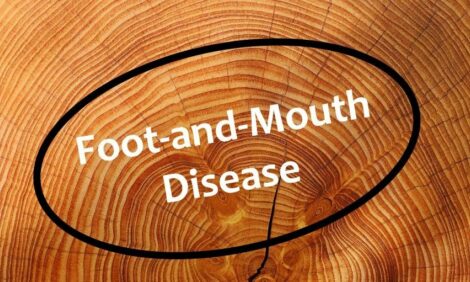



Shaping dairy farm vaccination decisions: Social pressure and veterinary influence
New study looks at key factors influencing vaccination intentions among Israeli dairy farmersA new study has identified key factors influencing vaccination intentions among Israeli dairy farmers. By comparing five diseases affecting dairy cattle, the research highlights the significant impact of social pressure and underscores the need for improved communication between veterinarians and farmers to optimize voluntary vaccination programs. These findings are crucial for enhancing epidemic control and ensuring the health and productivity of dairy farms.
A new study by Prof. Eyal Klement and PhD Student Michal Morgenstern from the Koret School of Veterinary Medicine at the Hebrew University, in collaboration with Dr. Jaap Sok from the Business Economics Department at Wageningen University and Research, has unveiled key factors influencing vaccination intentions among Israeli dairy farmers. The research, crucial for optimizing voluntary vaccination programs, compared five diseases affecting dairy cattle: Botulism, Bovine Ephemeral Fever, Brucellosis, Lumpy Skin Disease, and Rabies.
Effective vaccination is vital for epidemic control, especially in voluntary vaccination contexts. Despite its importance, there is limited understanding of how veterinarian communication and disease-specific traits impact farmer vaccination intentions. This study fills that gap by analyzing responses from 340 Israeli dairy farmers through questionnaires grounded in the theory of planned behavior. Veterinarians overseeing these farms also provided insights into their opinions and perceived influence on vaccination decisions.
The findings revealed varying levels of farmer vaccination intention, with Botulism (a deadly bacterial induced intoxication) showing the highest and Bovine Ephemeral Fever (an arthropod-borne viral disease) the lowest. Social pressure significantly influenced farmers' vaccination decisions, with distinct patterns emerging across different diseases. Notably, veterinarian opinions had the highest influence only for Lumpy Skin Disease (an arthropod-borne viral pandemic), while other factors played critical roles for other diseases. Interestingly, there was no correlation between veterinarians' recommendations and farmers' perceptions of these recommendations.
Prof. Klement emphasized the need for tailored interventions to optimize voluntary vaccination programs. "The study highlights the multifaceted influences on farmers' vaccination intentions, particularly the prevailing impact of perceived social pressure," he said. "However, variations exist across diseases, and there is a notable disconnection between veterinarians' opinions and how they're perceived by farmers. This discrepancy suggests potential communication breakdowns."
Regulations, laws, and guidelines regarding livestock vaccinations vary by country and region, often combining mandatory and voluntary programs to safeguard animal health and food safety. For instance, the European Union and Israel have specific vaccination protocols, while organizations like RUMA in the UK provide non-binding guidelines. However, understanding the influences on farmers' decision-making processes beyond these rules—such as social pressures and veterinarian recommendations—is crucial.
These factors significantly impact the effectiveness of voluntary vaccination programs, as farmers' choices are shaped by a complex interplay of social norms, trust in veterinarians, and perceived cost-benefit analyses. Recognizing these influences can lead to more tailored and effective vaccination strategies, enhancing overall livestock health and productivity. The study advocates for the pivotal role of veterinarians in guiding vaccination choices due to their medical expertise. It underscores the necessity of improving communication between veterinarians and farmers, with an emphasis on effective risk communication training.
The research paper titled “Would you bet on the vet? Influences on dairy farmers' vaccination choices, with a spotlight on the Veterinarian impact” is now available in Preventive Veterinary Medicine and can be accessed at https://doi.org/10.1016/j.prevetmed.2024.106262.


